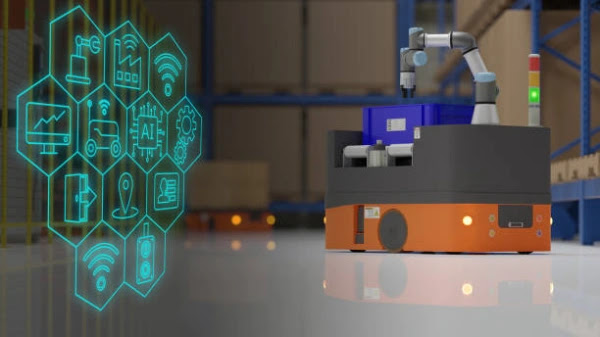Featured
- Get link
- X
- Other Apps
Applications of Artificial Intelligence
Smart Homes
Introduction
The advent of artificial intelligence (AI) has
revolutionized various industries, and its integration into smart home systems
has transformed the way we interact with our living spaces. AI-powered smart
homes leverage advanced algorithms and data analytics to enhance comfort,
convenience, security, and energy efficiency. This essay explores the diverse
applications of artificial intelligence in smart homes, highlighting how these
technologies are reshaping the future of residential living.
- Intelligent
Home Automation: One of the key applications of AI in smart homes is
intelligent home automation. AI algorithms enable devices and appliances
within the home to learn from user behavior, adapt to preferences, and
automate routine tasks. For example, smart thermostats equipped with AI
can analyze temperature patterns, occupancy data, and weather forecasts to
optimize heating and cooling settings, ensuring comfort while minimizing
energy consumption.
Similarly, AI-powered lighting systems adjust brightness
levels, color temperatures, and schedules based on user habits and
environmental conditions, enhancing ambiance and energy efficiency.
Additionally, AI-driven home assistants, such as Amazon Alexa or Google
Assistant, utilize natural language processing (NLP) and machine learning to
understand user commands, answer queries, and control various smart devices
through voice commands or smartphone apps.
- Enhanced
Home Security: AI plays a crucial role in enhancing home security by
enabling intelligent surveillance, intrusion detection, and threat
recognition capabilities. Smart security cameras equipped with computer
vision algorithms can distinguish between humans, pets, and objects,
reducing false alarms and enhancing detection accuracy. These cameras can
also analyze footage in real-time to identify suspicious activities, such
as unauthorized entry or package theft, and alert homeowners or
authorities accordingly.
Moreover, AI-powered facial recognition systems provide
personalized access control, allowing homeowners to unlock doors, disarm
alarms, or grant access to authorized individuals based on facial biometrics.
Machine learning algorithms continuously improve the accuracy and reliability
of these systems, making them more effective in preventing security breaches
and unauthorized access.
- Personalized
Home Entertainment: AI technology enables personalized home entertainment
experiences tailored to individual preferences and viewing habits. Content
recommendation algorithms analyze viewing history, genre preferences, and
user feedback to suggest relevant movies, TV shows, or music playlists.
Streaming services like Netflix and Spotify leverage AI to curate
personalized content libraries and create customized playlists for users.
Furthermore, AI-driven voice assistants can control home
entertainment systems, adjusting volume levels, selecting channels, or
launching streaming apps based on user commands. Natural language understanding
capabilities enable seamless interaction with the entertainment system,
enhancing user convenience and accessibility.
- Energy
Management and Efficiency: AI plays a crucial role in optimizing energy
management and promoting energy efficiency in smart homes. Machine
learning algorithms analyze historical energy usage data, weather
forecasts, and occupancy patterns to optimize heating, cooling, and lighting
systems for maximum efficiency. AI-powered energy management platforms can
automatically adjust thermostat settings, dim lights, or turn off
appliances during periods of low occupancy to minimize energy waste.
Moreover, AI algorithms can identify energy-saving
opportunities and recommend behavior changes or system upgrades to reduce
energy consumption further. Smart meters equipped with AI analytics provide
real-time insights into energy usage patterns, enabling homeowners to track
their consumption, set energy-saving goals, and monitor the impact of their
actions on utility bills.
Conclusion
In conclusion, the integration of artificial intelligence
into smart home systems has transformed residential living, enhancing comfort,
convenience, security, and energy efficiency. From intelligent home automation
to enhanced security, personalized entertainment, and energy management,
AI-powered smart homes offer a glimpse into the future of connected living
spaces. As AI technologies continue to evolve and become more ubiquitous, smart
homes will play an increasingly significant role in shaping the way we live and
interact with our surroundings.
- Get link
- X
- Other Apps


